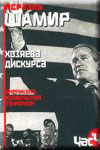Architects of Economic Collapse
Michel Chossudovsky
The October 2008 financial meltdown is not the result of a cyclical economic phenomenon. It is the deliberate result of US government policy instrumented through the Treasury and the US Federal Reserve Board. This is the most serious economic crisis in World history.
The "bailout" proposed by the US Treasury does not constitute a "solution" to the crisis. In fact quite the opposite: it is the cause of further collapse. It triggers an unprecedented concentration of wealth, which in turn contributes to widening economic and social inequalities both within and between nations.
The levels of indebtedness have skyrocketed. Industrial corporations are driven into bankruptcy, taken over by the global financial institutions. Credit, namely the supply of loanable funds, which constitutes the lifeline of production and investment, is controlled by a handful of financial conglomerates.
With the "bailout", the public debt has spiralled. America is the most indebted country on earth. Prior to the "bailout", the US public debt was of the order of 10 trillion dollars. This US dollar denominated debt is composed of outstanding treasury bills and government bonds held by individuals, foreign governments, corporations and financial institutions.
"The Bailout": The US Administration is Financing its Own Indebtedness
Ironically, the Wall Street banks - which are the recipients of the bailout money - are also the brokers and underwriters of the US public debt. Although the banks hold only a portion of the public debt, they transact and trade in US dollar denominated public debt instruments Worldwide. In a bitter twist, the banks are the recipients of a 700+ billion dollar handout and at the same time they act as creditors of the US government.
We are dealing with an absurd circular relationship: To finance the bailout, Washington must borrow from the banks, which are the recipients of the bailout. The US administration is financing its own indebtedness.
Federal, State and municipal governments are increasingly in a straightjacket, under the tight control of the global financial conglomerates. Increasingly, the creditors call the shots on government reform. The bailout is conducive to the consolidation and centralization of banking power, which in turn backlashes on real economic activity, leading to a string of bankruptcies and mass unemployment.
Will an Obama Administration Reverse the Tide?
The financial crisis is the outcome of a deregulated financial architecture. Obama has stated unequivocally his resolve to address the policy failures of the Bush administration and "democratize" the US financial system. President-Elect Barack Obama says that he is committed to reversing the tide:
"Let us remember that if this financial crisis taught us anything, it's that we cannot have a thriving Wall Street while Main Street suffers. In this country, we rise or fall as one nation, as one people" (President-elect Barack Obama, November 4, 2008, emphasis added)
The Democrats casually blame the Bush administration for the October financial meltdown. Obama says that he will be introducing an entirely different policy agenda which responds to the interests of Main Street:
"Tomorrow, you can turn the page on policies that put the greed and irresponsibility of Wall Street before the hard work and sacrifice of men and women all across Main Street. Tomorrow you can choose policies that invest in our middle class and create new jobs and grow this economy so that everybody has a chance to succeed, from the CEO to the secretary and the janitor, from the factory owner to the men and women who work on the factory floor" (Barack Obama, election campaign, November 3, 2008, emphasis added)
Is Obama committed to "taming Wall Street"
and "disarming financial markets"?
Ironically, it was under the Clinton
administration that these policies of "greed and irresponsibility" were
adopted.
The 1999 Financial Services Modernization Act
(FSMA) was conducive to the the repeal of the Glass-Steagall Act of 1933. A
pillar of President Roosevelt's "New Deal", the Glass-Steagall Act was put in
place in response to the climate of corruption, financial manipulation and
"insider trading" which resulted in more than 5,000 bank failures in the years
following the 1929 Wall Street crash.
Bill Clinton signs into law the Gramm-Leach-Bliley Financial Services Modernization Act, November 12, 1999. Under the 1999 Financial Services Modernization Act, effective control over the entire US financial services industry (including insurance companies, pension funds, securities companies, etc.) had been transferred to a handful of financial conglomerates and their associated hedge funds.
The Engineers of Financial Disaster
Who are the architects of this debacle? In a bitter irony, the engineers of financial disaster are now being considered by President-Elect Barack Obama's Transition Team for the position Treasury Secretary:
Lawrence Summers played a key role in lobbying Congress for the repeal of the Glass Steagall Act. His timely appointment by President Clinton in 1999 as Treasury Secretary spearheaded the adoption of the Financial Services Modernization Act in November 1999. Upon completing his mandate at the helm of the US Treasury, he became president of Harvard University (2001- 2006).
Paul Volker was chairman of the Federal
Reserve Board in the 1980s during the Reagan era. He played a central role in
implementing the first stage of financial deregulation, which was conducive to
mass bankruptcies, mergers and acquisitions, leading up to the 1987 financial
crisis.
Timothy Geithner is CEO of the Federal
Reserve Bank of New York, which is the most powerful private financial
institution in America. He was also a former Clinton administration Treasury
official. He has worked for Kissinger Associates and has also held a
senior position at the IMF. The FRBNY plays a behind the scenes role in shaping
financial policy. Geithner acts on behalf of powerful financiers, who are behind
the FRBNY. He is also a member of the Council on Foreign Relations (CFR)
Jon Corzine is currently governor of New Jersey, former CEO of Goldman Sachs.
At the time of writing, Obama's favorite is Larry Summers, front-runner for the position of Treasury Secretary. Harvard University Economics Professor Lawrence Summers served as Chief Economist for the World Bank (1991–1993). He contributed to shaping the macro-economic reforms imposed on numerous indebted developing countries. The social and economic impact of these reforms under the IMF-World Bank sponsored structural adjustment program (SAP) were devastating, resulting in mass poverty.
Larry Summer's stint at the World Bank coincided with the collapse of the Soviet Union and the imposition of the IMF-World Bank's deadly "economic medicine" on Eastern Europe, the former Soviet republics and the Balkans.
In 1993, Summers moved to the US Treasury. He initially held the position of Undersecretary of the Treasury for international affairs and later Deputy Secretary. In liaison with his former colleagues at the IMF and the World Bank, he played a key role in crafting the economic "shock treatment" reform packages imposed at the height of the 1997 Asian crisis on South Korea, Thailand and Indonesia.
The bailout agreements negotiated with these three countries were coordinated through Summers office at the Treasury in liaison with the Federal Reserve Bank of New York and the Washington based Bretton Woods institutions. Summers worked closely with IMF Deputy Managing Director Stanley Fischer, who was later appointed Governor of the Central Bank of Israel.
Larry Summers became Treasury Secretary in July 1999. He is a protégé of David Rockefeller. He was among the main architects of the infamous Financial Services Modernization Act, which provided legitimacy to inside trading and outright financial manipulation.
"Putting the Fox in Charge of the Chicken Coop"
Summers is currently a Consultant to Goldman Sachs and managing director of a Hedge fund, the D.E. Shaw Group. As a Hedge Fund manager, his contacts at the Treasury and on Wall Street provide him with valuable inside information on the movement of financial markets. Putting a Hedge Fund manager (with links to the Wall Street financial establishment) in charge of the Treasury is tantamount to putting the fox in charge of the chicken coop.
The Washington Consensus
Summers, Geithner, Corzine, Volker, Fischer, Phil Gramm, Bernanke, Hank Paulson, Rubin, not to mention Alan Greenspan, all are buddies; they play golf together; they have links to the Council on Foreign Relations and the Bilderberg; they act concurrently in accordance with the interests of Wall Street; they meet behind closed doors; they are on the same wave length; they are Democrats and Republicans.
While they may disagree on some issues, they are firmly committed to the Washington-Wall Street Consensus. They are utterly ruthless in their management of economic and financial processes. Their actions are profit driven. Outside of their narrow interest in the "efficiency" of "markets", they have little concern for "living human beings". How are people's lives affected by the deadly gamut of macro-economic and financial reforms, which is spearheading entire sectors of economic activity into bankruptcy.
The economic reasoning underlying neo-liberal
economic discourse is often cynical and contemptuous. In this regard,
Lawrence Summers' economic discourse stands out. He is known
among environmentalists for having proposed the dumping of toxic waste in Third
World countries, because people in poor countries have shorter lives and the
costs of labour are abysmally low, which essentially means that the market
value of people in the Third World is much lower. According to Summers,
this makes it far more "cost effective" to export toxic materials to
impoverished countries. A controversial 1991 World Bank memo signed by of
Chief Economist Larry Summers reads as follows (excerpts, emphasis
added):
DATE: December 12, 1991 TO: Distribution FR: Lawrence H. Summers
Subject: GEP
"'Dirty' Industries: Just between you and me,
shouldn't the World Bank be encouraging MORE migration of the dirty
industries to the Less Developed Countries? I can think of three
reasons:
1) The measurements of the costs of health
impairing pollution depends on the foregone earnings from increased morbidity
and mortality... From this point of view a given amount of health impairing
pollution should be done in the country with the lowest cost, which will be the
country with the lowest wages. I think the economic logic behind dumping a
load of toxic waste in the lowest wage country is impeccable and we should face
up to that.
2) The costs of pollution are likely to be non-linear as
the initial increments of pollution probably have very low cost. I've always
though that under-populated countries in Africa are vastly UNDER-polluted,
their air quality is probably vastly inefficiently low compared to Los Angeles
or Mexico City. Only the lamentable facts that so much pollution is generated by
non-tradable industries (transport, electrical generation) and that the unit
transport costs of solid waste are so high prevent world welfare enhancing trade
in air pollution and waste.
3) The demand for a clean environment for
aesthetic and health reasons is likely to have very high income elasticity [the
demand increases when income levels increase]. The concern over an agent that
causes a one in a million change in the odds of prostrate cancer is obviously
going to be much higher in a country where people survive to get prostrate
cancer than in a country where under 5 mortality is 200 per thousand.... "
http://www.globalpolicy.org/socecon/envronmt/summers.htm
Summers stance on the export of pollution to developing countries had a marked impact on US environmental policy:
In 1994, "virtually every country in the world broke with Mr. Summers' Harvard-trained "economic logic" ruminations about dumping rich countries' poisons on their poorer neighbors, and agreed to ban the export of hazardous wastes from OECD to non-OECD [developing] countries under the Basel Convention. Five years later, the United States is one of the few countries that has yet to ratify the Basel Convention or the Basel Convention's Ban Amendment on the export of hazardous wastes from OECD to non-OECD countries. (Jim Valette, Larry Summers' War Against the Earth, Counterpunch, undated)
The 1997 Asian Crisis: Dress Rehearsal for Things to Come
In the course of 1997, currency speculation instrumented by major financial institutions directed against Thailand, Indonesia and South Korea was conducive to the collapse of national currencies and the transfer of billions of dollars of central bank reserves into private financial hands. Several observers pointed to the deliberate manipulation of equity and currency markets by investment banks and brokerage firms.
While the Asian bailout agreements were formally negotiated with the IMF, the major Wall Street commercial banks (including Chase, Bank of America, Citigroup and J. P. Morgan) as well as the "big five" merchant banks (Goldman Sachs, Lehman Brothers, Morgan Stanley and Salomon Smith Barney) were "consulted" on the clauses to be included in the Asian bail-out agreements.
The US Treasury in liaison with Wall
Street and the Bretton Woods institutions played a central role in negotiating
the bailout agreements. Both Larry Summers and Timothy Geithner, were
actively involved on behalf of the US Treasury in the 1997 bailout of South
Korea:
[In 1997] "Messrs. Summers and Geithner worked to persuade
Mr. Rubin to support financial aid to South Korea. Mr. Rubin was wary of such a
move, worrying that providing money to a country in dire straits might be a
losing proposition..." (WSJ, November 8, 2008)
What happened in Korea under advice from Deputy Treasury Secretary Summers et al, had nothing to do with "financial aid". The country was literally ransacked. Undersecretary of the Treasury David Lipton was sent to Seoul in early December 1997. Secret negotiations were initiated. Washington had demanded the firing of the Korean Finance Minister and the unconditional acceptance of the IMF "bailout".
A new finance minister, who happened to be former IMF and World Bank official, was appointed and immediately rushed off to Washington for "consultations" with his former IMF colleague Deputy Managing Director Stanley Fischer.
"The Korean Legislature had met in emergency sessions on December 23. The final decision concerning the 57 billion dollar deal took place the following day, on Christmas Eve December 24th, after office hours in New York. Wall Street's top financiers, from Chase Manhattan, Bank America, Citicorp and J. P. Morgan had been called in for a meeting at the Federal Reserve Bank of New York. Also at the Christmas Eve venue, were representatives of the big five New York merchant banks including Goldman Sachs, Lehman Brothers, Morgan Stanley and Salomon Smith Barney. And at midnight on Christmas Eve, upon receiving the green light from the banks, the IMF was allowed to rush 10 billion dollars to Seoul to meet the avalanche of maturing short-term debts.
The coffers of Korea's central Bank had
been ransacked. Creditors and speculators were anxiously awaiting to collect the
loot. The same institutions which had earlier speculated against the Korean won
were cashing in on the IMF bailout money. It was a scam" (See Michel
Chossudovsky, The Recolonization of Korea, subsequently published as a
chapter in The Globalization of Poverty and the New World Order, Global
Research, Montreal, 2003.)
"Strong economic medicine" is the
prescription of the Washington Consensus. "Short term pain for long term
gain" was the motto at the World Bank during Lawrence Summers term of as World
Bank Chief Economist (See IMF, World Bank Reforms Leave Poor Behind, Bank
Economist Finds, Bloomberg, November 7, 2000)
What we dealing with is an entire "old
boys network" of officials and advisers at the Treasury, the Federal
Reserve, the IMF, World Bank, the Washington Think Tanks, who are in
permanent liaison with leading financiers on Wall Street.
Whoever is chosen by Obama's Transition team
will belong to the Washington Consensus.
The 1999 Financial Services Modernization
Act
What happened in October 1999 is crucial. In
the wake of lengthy negotiations behind closed doors, in the Wall Street
boardrooms, in which Larry Summers played a central role, the regulatory
restraints on Wall Street's powerful banking conglomerates were revoked "with a
stroke of the pen".
Larry Summers worked closely with Senator
Phil Gramm (1985-2002),chairman of the Senate Banking committee, who was the
legislative architect of the the Gramm-Leach-Bliley Financial Services
Modernization Act, signed into law on November 12, 1999 (For Complete text
click US Congress: Pub.L. 106-102). As Texas Senator, Phil Gramm was
closely associated with Enron.
In December 2000 at the very end of the
Clinton mandate, Gramm introduced a second piece of legislation, the so-called
Gramm-Lugar Commodity Futures Modernization Act, which paved the way for the
speculative onslaught in primary commodities including oil and food
staples.
"The act, he declared, would ensure that neither the
sec nor the Commodity Futures Trading Commission (cftc) got into the business of
regulating newfangled financial products called swaps - and would thus "protect
financial institutions from overregulation" and "position our financial services
industries to be world leaders into the new century." (See David Corn,
Foreclosure Phil, Mother Jones, July August 2008)
Phil Gramm was McCain's first choice for
Secretary of the Treasury.
Under the FSMA new rules – ratified by the US
Senate in October 1999 and approved by President Clinton – commercial banks,
brokerage firms, hedge funds, institutional investors, pension funds and
insurance companies could freely invest in each others businesses as well as
fully integrate their financial operations.
A "global financial supermarket"
had been created, setting the stage for a massive concentration of
financial power. One of the key figures behind this project was Secretary of
the Treasury Larry Summers, in liaison with David Rockefeller. Summers
described the FSMA as "the legislative foundation of the financial system of the
21st century". That legislative foundation is among the main causes of the
2008 financial meltdown.
Financial Disarmament
There can be no meaningful solution to the
crisis, unless there is a major reform in the financial architecture, implying
inter alia the freezing of speculative trade and the "disarming of
financial markets". The project of disarming financial markets was
first proposed by John Maynard Keynes in the 1940s as a means to the
establishment of a multi-polar international monetary system. (See J.M.
Keynes, Activities 1940-1944, Shaping the Post-War World: The Clearing Union,
The Collected Writings of John Maynard Keynes, Royal Economic Society,
Macmillan and Cambridge University Press, Vol. XXV, London 1980, p.
57).
Main Street versus Wall
Street
Where are Obama's "Main Street
appointees"? Namely individuals who respond to the interests of people
across America. There are no labour or community leaders on Obama's list
for key positions. The President-elect is appointing the architects of
financial deregulation.
Meaningful financial reform
cannot be adopted by officials appointed by Wall Street and who act on behalf of
Wall Street. Those who set the financial system ablaze in 1999, have been
called back to turn out the fire. The proposed "solution" to the crisis
under the "bailout" is the cause of further economic collapse. There are
no policy solutions on the horizon.
The banking conglomerates call the shots.
They decide on the composition of the Obama Cabinet. They also decide on the
agenda of the Washington Financial Summit (November 15, 2008) which is
slated to lay the groundwork for the establishment of a new "global financial
architecture".
The Wall Street blueprint has already been
discussed behind closed doors: the hidden agenda is to establish a unipolar
international monetary system, dominated by US financial power, which in turn
would be protected and secured by US military
superiority.
Neo-liberalism with a "Human
Face"
There is no indication that Obama will break
his ties to his Wall Street sponsors, who largely funded his election campaign.
Goldman Sachs, J.P. Morgan Chase, Citigroup, Bill Gates' Microsoft are among his
main campaign contributors. Warren Buffett, among the world's richest
individuals, not only supported Barack Obama's election campaign, he is a member
of his transition team, which plays a key role deciding the composition of
Obama's cabinet.
Unless there is a major upheaval in the system of political appointments to key positions, an alternative Obama economic agenda geared towards poverty alleviation and employment creation is highly unlikely.
What we are witnessing is continuity. Obama provides a " human face" to the status quo. This human face serves to mislead Americans on the nature of the economic and political process. The neo-liberal economic reforms remain intact.
The substance of these reforms including the "bailout" of America's largest financial institutions ultimately destroys the real economy, while spearheading entire areas of manufacturing and the services economy into bankruptcy.
Courtesy Global Research http://www.globalresearch.ca/index.php?context=va&aid=10860























